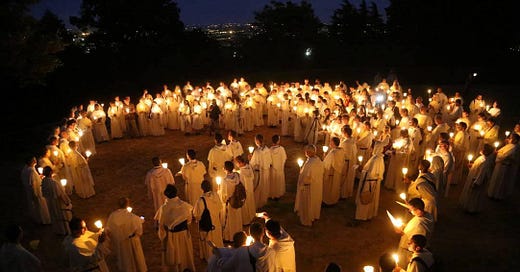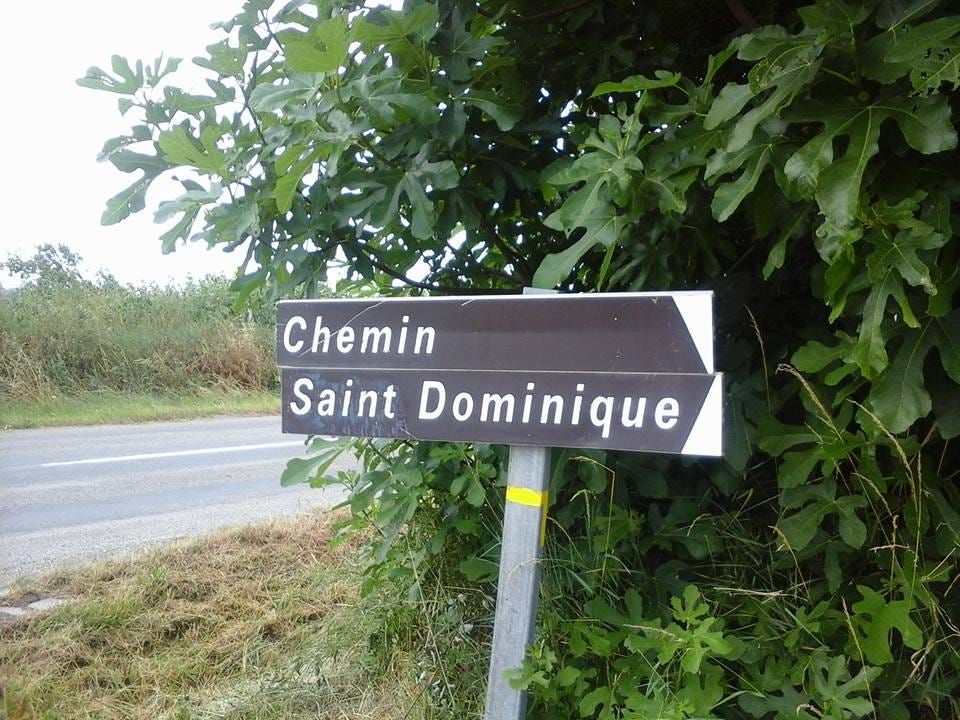Pilgrims of Hope: A Journey for Our Times
And a Method to Start the Conversation wherever you are
Some words seem weightless until life forces us to hold them differently. ‘Hope’ is one of those words. We toss it around easily: ‘I hope it won’t rain, ‘I hope the train is on time,’ ‘I hope this works out.’ But what happens when hope is all we have left? When the weight of reality presses in, and we need something deeper than wishful thinking?
In 2025, the Church calls us to be Pilgrims of Hope in a Holy Year dedicated to rediscovering this virtue—not as a vague optimism, but as something solid, something transformative. Pope Benedict XVI and Pope Francis both remind us that Christian hope is not about closing our eyes and wishing for the best. It is an anchor, rooted in God's promise, that shapes how we live and act in the world.
As part of this initiative, I had the privilege of cooperating with Bishop Johannes van den Hende to help create a framework for meaningful conversations, ensuring that hope is not only spoken about but truly lived. Together, we sought to design an approach that encourages deep listening and shared reflection, allowing people to experience hope in community rather than as an abstract ideal.
But what does that look like in real life?
Hope: More Than a Feeling
For many, hope is an abstract concept—something nice to talk about in sermons but hard to grasp in daily life. Yet, the Christian tradition insists that hope is not passive. It is an active force that moves us beyond despair. It calls us to something greater, demanding that we act as carriers of hope, not just seekers of it.
Consider a moment in your own life when someone’s words, actions, or simple presence lifted you when you felt like giving up. Perhaps it was a friend who reminded you of your worth, a community that welcomed you when you felt lost, or a quiet realization in prayer that you were not alone. Hope is often carried in small gestures, unnoticed until we need them most.
A Hope That Engages the World
If hope is real, it must touch the world. It must step out of comfortable reflections and engage with the brokenness around us. That’s why this Holy Year invites us not just to reflect on hope, but to practice it.
Christian hope is not naïve. It does not ignore suffering or pretend everything is fine. Instead, it gives us the courage to step into the messiness of life with the conviction that redemption is possible. It compels us to advocate for justice, to care for the marginalized, to be voices of encouragement in spaces clouded by cynicism. As Pope Francis says in Spes Non Confundit, true hope “takes shape in concrete acts of love.”
So, where do we start? Maybe with a simple question: Who around me needs hope right now? A friend struggling with doubt? A stranger carrying invisible burdens? A society fractured by division? Hope begins where we choose to show up.
Listening as an Act of Hope
One of the most powerful ways to foster hope is through authentic conversation. Inspired by the Synod on Synodality, the Diocese of Rotterdam has introduced a practice called ‘listening conversations’—gatherings where people share their experiences of hope and faith, not to debate or persuade, but to truly hear one another.
Imagine sitting in a circle, free from the pressure to have all the answers, simply listening to how others have encountered hope in their lives. What would happen if we, as a Church, became known not just for what we preach but for how deeply we listen?
As part of the Holy Year, you are invited to take part in these conversations. Whether in student communities, parish groups, or informal settings, these discussions create space for hope to be discovered, named, and lived. Attached to this initiative are guiding questions, designed to spark meaningful dialogue. Perhaps one of the most striking is this: What’s the difference between real hope and false promises? In a world flooded with empty assurances, how do we recognize the kind of hope that endures?
Hope as a Pilgrimage
To be a Pilgrim of Hope is to embrace a journey—a walk toward something greater than ourselves. Like all pilgrimages, it requires endurance, trust, and the willingness to take the next step, even when the path is unclear.
At the time of the foundation of the Order, St Dominic experienced this uncertainty for many years before his apostolic project became clear and was approved. The hope that God is leading our efforts for the good is the strength that sustains us in the journeys of our life.
This year, let’s take that journey together. Let’s make hope visible—not just in words, but in how we live. In how we show up for one another. In how we listen, serve, and believe that light can break through even the deepest darkness.
The invitation stands: Where will you carry hope today?
Pictures: courtesy of the Order of Preachers (Jubilee Pilgrimage 2016)






